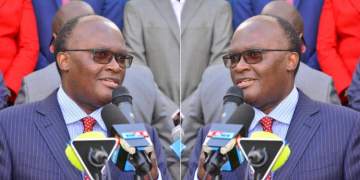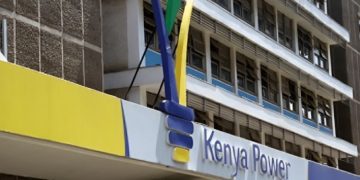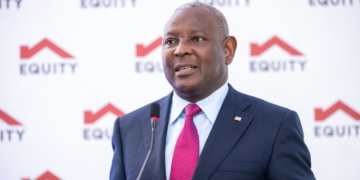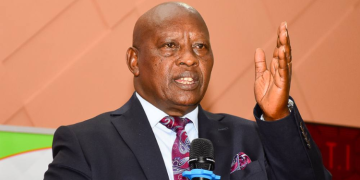Hello, I’m Annah. Welcome to today’s edition of The Business Roundup. In this issue, we examine the takeover of Coca-Cola Beverages Africa (CCBA) by Coca-Cola HBC AG and how the Kenya Revenue Authority (KRA) has introduced new tax rates on employee and company loans, among other key business updates.
Coca-Cola and the Gutsche Family Investments (GFI) are selling a 75% stake in Coca-Cola Beverages Africa (CCBA) to Coca-Cola HBC for $3.4 billion.
The deal announced on Tuesday, October 21, gives Coca-Cola HBC control of most of Africa’s Coca-Cola business, covering more than half of the continent’s population.
Subscribe today and stay updated on top news stories in The Kenya Times Business Roundup. The Roundup presents a compilation of business stories that hit headlines throughout the week.
CCBA, the largest Coca-Cola bottler in Africa, operates in 14 countries and accounts for about 40% of all Coca-Cola products sold across the continent.
Coca-Cola HBC, one of the largest Coca-Cola bottlers globally, operates in 29 countries across Europe and Africa, including Nigeria and Egypt.
As part of the transaction, Coca-Cola will sell 41.52% of its 66.52% stake in CCBA to Coca-Cola HBC, while Coca-Cola HBC will also acquire the 33.48% stake held by the Gutsche family’s GFI.
The transactions are expected to close by the end of 2026, subject to satisfaction of conditions, including customary regulatory and antitrust approvals.
Additionally, Coca-Cola and Coca-Cola HBC have agreed on a separate option allowing HBC to acquire the remaining 25% stake in CCBA owned by Coca-Cola within six years after the closing of the transaction.
After the sale, the Gutsche family will continue its involvement in both the Coca-Cola system and Africa through its ownership stake in Coca-Cola HBC.

KRA Maintains 8% Tax Rate for Fringe Benefits
The Kenya Revenue Authority has announced that employees will pay an 8% Fringe Benefit Tax (FBT) on perks and interest from October to December 2025.
Fringe Benefit Tax is imposed on benefits that employees receive from their employers outside of their normal salary, such as low-interest loans, company vehicles, or employer-provided housing.
For instance, if an employer offers a staff loan at below-market rates or allows personal use of a company vehicle, the value of that benefit is taxable.
According to the notice issued under the Income Tax Act, this rate will be used by employers when determining the taxable value of certain non-cash employee benefits.
“For Section 12B of the Income Tax Act, the Market Interest Rate is 8 per cent. This rate shall be applicable for the three months of October, November, and December 2025,” the statement read.
The same 8% rate also applies as the prescribed rate under Section 16(2)(ja) of the Act for the same period.
In addition, the KRA has confirmed that a withholding tax of 15% on the deemed interest must be deducted and remitted to the Commissioner within five working days.

EAC confirms start of Kenya–Uganda expressway construction
The announcement was made after a Market Sounding Conference held in Kampala, Uganda, where government officials, financiers, and private sector leaders endorsed the close to 200-kilometer expressway as a key infrastructure priority for the region.
The project is supported by the African Development Bank (AfDB) and implemented under the EAC framework, with grant financing provided through the NEPAD Infrastructure Project Preparation Facility (NEPAD-IPPF).
Once developed, the corridor will redefine mobility and trade between Kenya and Uganda by reducing travel time and easing congestion.
It will also enhance the flow of goods and people along one of East Africa’s busiest transport routes, which is part of the Trans-African Highway and the EAC Regional Trunk Road Network.
The feasibility studies recommend major upgrades on both sides of the border.
In Uganda, a new 60-kilometer greenfield expressway will be developed between Jinja and Busesa through a Public–Private Partnership. This will coincide with the dualling of the Busesa–Malaba and Busitema–Busia sections, while the Lwakhakha–Bumbobi section will remain a single carriageway.
On the Kenyan side, works will include dualling the Kisumu bypass and upgrading the Kimaeti–Lwakhakha road to bitumen standards.
The Busia and Malaba One Stop Border Posts will also be rehabilitated to improve clearance and efficiency.
Kenya’s Remittances Dip Slightly
Kenya’s remittances slightly declined to US$419.6 million (Ksh 54.2 billion) in September 2025, down from US$426.1 million (Ksh 55.1 billion) in August, according to data from the Central Bank of Kenya (CBK).
The 1.5% month-on-month decline followed a strong rebound in August that had pushed inflows to a record high.
Between January and September 2025, total remittances reached US$3.77 billion (Ksh 487.5 billion), up from US$3.64 billion (Ksh 470.6 billion) during the same period in 2024 — representing a 3.7% increase.
The nine-month average stands at US$419 million (Ksh 54.1 billion) per month.
The United States remains the largest source of these remittances.
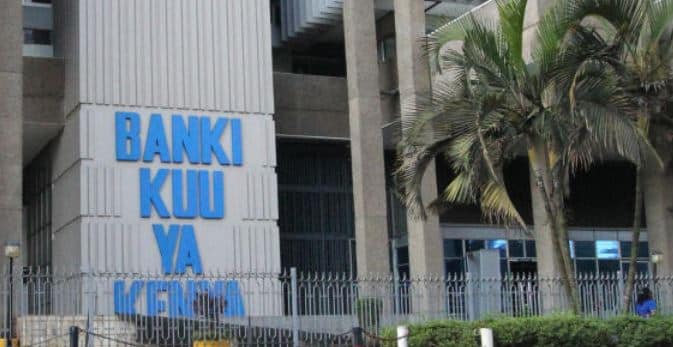
ALSO BIG THIS WEEK
- Kenyans trading in cryptocurrencies such as Bitcoin may soon get insurance cover against hacking, theft, and fraud. This follows the Insurance Regulatory Authority (IRA) drafting new rules to allow insurers to offer virtual asset insurance — a new class of business targeting crypto-related risks.
- Kenyans will have to pay more for fuel and electricity as the government plans to introduce a new levy under the Consolidated Energy Fund to finance power projects, dams, and renewable energy initiatives.
- Equity Bank has more than doubled its investment in employee training, spending Ksh847 million in 2024. In its 2024 Sustainability Report, Equity Group’s employee training budget soared from Ksh 316 million to Ksh 847 million.
- E-Mobility firm Spiro, which operates battery-swapping networks in Kenya and five other African countries, has raised $100 million (Ksh 12.8 billion) — one of the largest electric vehicle (EV) investments in Africa. This includes US$75 million from The Fund for Export Development in Africa (FEDA), the development impact investment arm of African Export-Import Bank (Afreximbank).
- The Auditor General has raised concerns over hiring practices at the Central Bank, citing the appointment of managers who lacked the required experience and the failure to follow Salaries and Remuneration Commission (SRC) guidelines on pay and promotions. The audit further revealed that the CBK mishandled staff transfers and operated for several months without a fully constituted board.
- Qatar Airways and Kenya Airways (KQ) have announced a codeshare deal covering 19 routes. KQ customers can now connect from Nairobi to Doha and beyond, starting 26th October
- Collections from the anti-kerosene adulteration levy dropped to Ksh847 million last year, the first time below Ksh1 billion. The drop was due to reduced kerosene use after tough crackdowns on fuel adulteration.
Currency Trends
The Kenya shilling remained stable against major international and regional currencies during the week ending October 16, 2025.
It exchanged at Ksh 129.23 per USD on October 16, unchanged from the rate on October 19.
Kenya’s apex bank, CBK, quoted the shilling at Ksh 129.2391on Tuesday, October 22.
Against other major currencies, the shilling traded at:
- Sterling Pound – Ksh172.7927
- Euro – Ksh150.0724
- South African Rand – 7.4111
- Japanese Yen (100 units) – Ksh85.1911
Against regional currencies, the shilling exchanged at:
-
- Ugandan Shilling – Ksh26.9268
- Tanzanian Shilling – Ksh19. o345
- Rwandan Franc – Ksh11. 2401
Follow our WhatsApp Channel and X Account for real-time news updates.
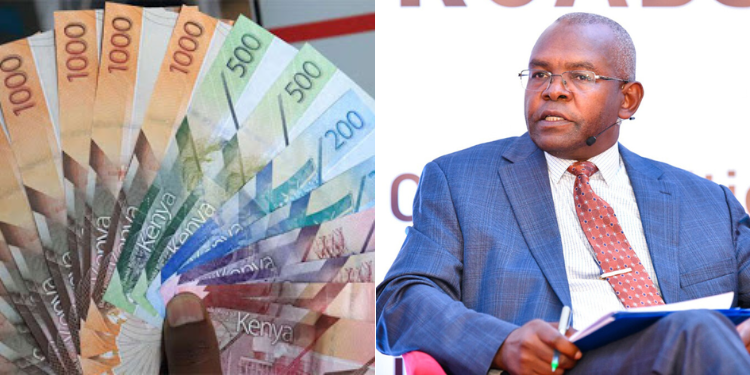



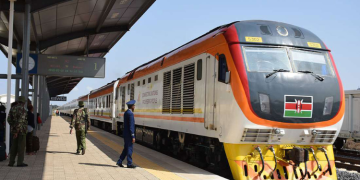

![Court Suspends Sections Of The Computer Misuse And Cybercrimes Act President Ruto Address During Mashujaa Day And How He Honored Raila [Full Text Speech]](https://thekenyatimescdn-ese7d3e7ghdnbfa9.z01.azurefd.net/prodimages/uploads/2025/10/ruto-mashujaa-address-360x180.jpg)


